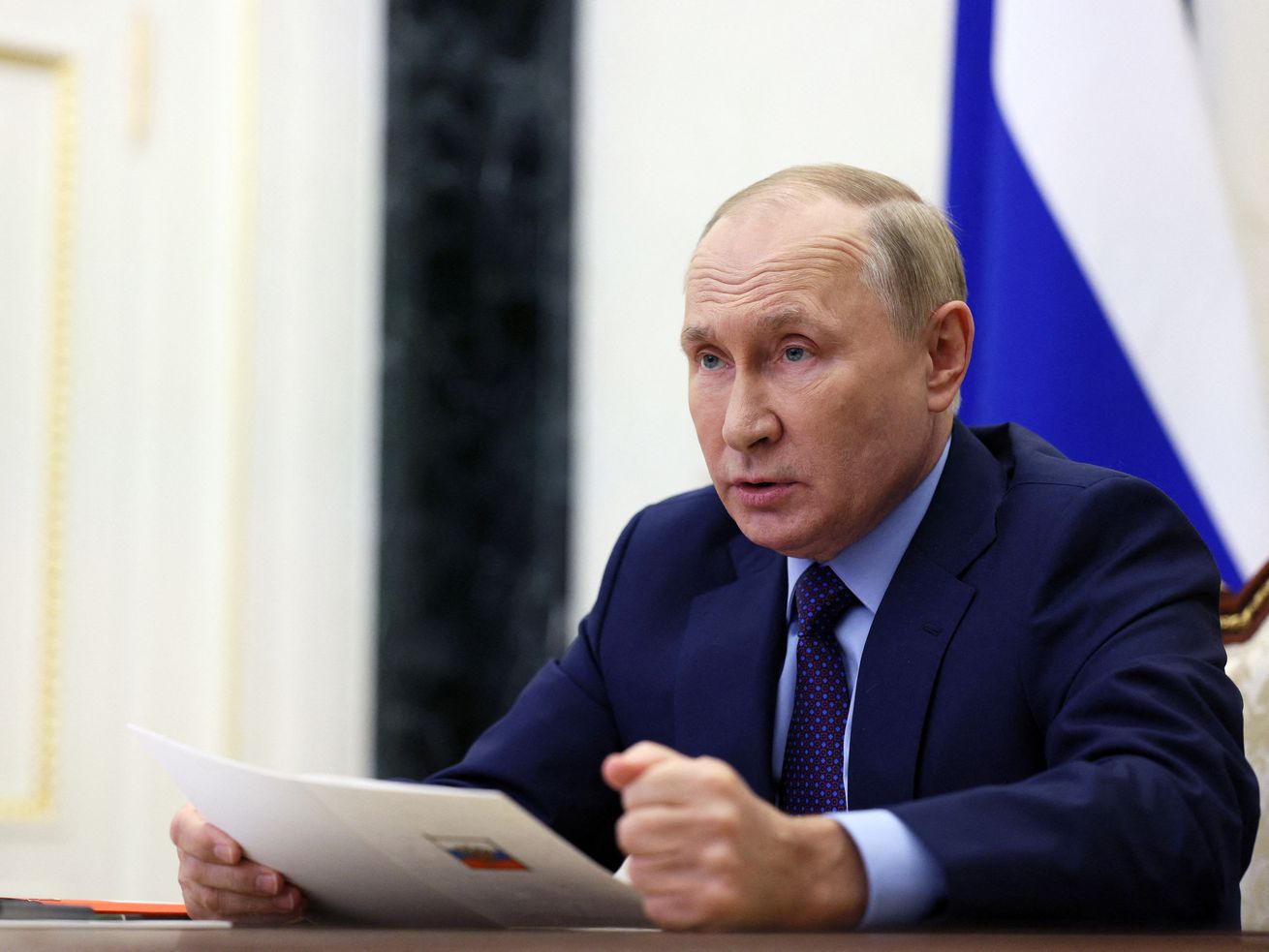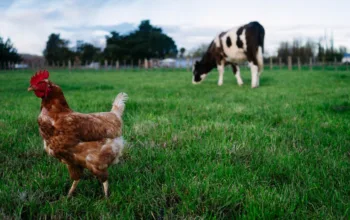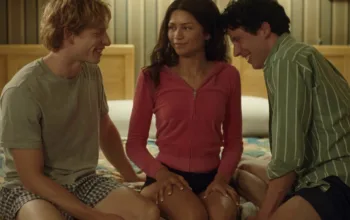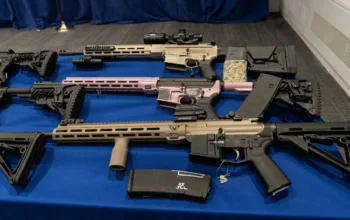Here’s what their responses say about the political factors weighing on Putin — and how that all might affect his response to the Ukrainian counteroffensive.
A surprise Ukrainian counteroffensive over the weekend appears to have caught Russia on its back foot — and could have consequences for Russian President Vladimir Putin both in the war and at home.
In just days, Ukrainian forces liberated more than 150,000 people and 3,100 square miles of territory in the country’s Kharkiv region from Russian occupation, according to Ukrainian government officials. Ukraine’s push forced Russian troops to quickly abandon key supply hubs and military equipment. Video circulating on social media shows some residents emerging from their homes and embracing Ukrainian soldiers. Russian forces have responded with strikes on critical infrastructure, but it’s unclear whether they will be able to regain their footing in the region.
As Washington Post Russia reporter Mary Ilyushina tells Today, Explained’s Sean Rameswaram, Ukrainian troops overcame an exhausted and disorganized Russian army with the help of Western intelligence and weapons.
While it’s too early to say whether this breakthrough represents a turning point in the war, it does appear that it’s made some of Putin’s supporters skeptical of whether his “special operation” is actually winnable. Some have advocated for a more aggressive Russian response, even pushing for general mobilization and the use of weapons bought from North Korea. As Ilyushina says, the typically “unanimous choir of pro-Kremlin and state propagandist voices” was in disarray.
Today, Explained spoke to Ilyushina to understand those different responses, what they tell us about the political factors weighing on Putin, and how that all might affect his response to the Ukrainian counteroffensive.
Below is an excerpt of the conversation, edited for length and clarity. There’s much more in the full podcast, so listen to Today, Explained wherever you get podcasts, including Apple Podcasts, Google Podcasts, Spotify, and Stitcher.
Sean Rameswaram
How embarrassing is all this for Vladimir Putin?
Mary Ilyushina
It is pretty embarrassing because his main brand, and the one that he’s been building for the past 20 years, is that he knows what he’s doing. He always gets the job done. In this case, we see even people who are extremely pro-Kremlin, extremely pro- this invasion, saying that they don’t like the way Russia has gone about this. We’ve heard from people like the leader of the Russian Communist Party saying that Russia is not really fighting anymore in a “special operation” and this is an actual war. And the very use of the word “war” to describe this mission has been essentially banned by Russia. People get fined or even jailed for talking about the war out in the open. They have to call it a “special military operation.” So we’ve definitely seen a lot of criticism coming from the very pro-Putin, very hawkish camp. That is a very new development that we’ll have to see whether that will push the Kremlin to change anything in the way they go about this invasion.
Sean Rameswaram
Tell me more of what we’ve been hearing in terms of criticism of this war in Russia.
Mary Ilyushina
Last weekend, just when the news broke that Russia lost a lot of this land and it retreated, the usually quite unanimous choir of pro-Kremlin and state propagandist voices was really in disarray. Some people chose to completely ignore the news because they didn’t know how to handle it. Some outlets, like the Kremlin’s official newspaper, just did not report on this at all. Some very prominent TV shows started to say that, look, Russia is not just fighting against Ukraine, it’s fighting against the entire NATO alliance. That’s why they’re having such a hard time doing that. They want Putin and the Kremlin to be even more aggressive, retaliate against Ukraine, hit civilian targets, and just do more. They believe that the way Russia is waging this war now is not enough. They want general mobilization. They want the whole country to be set on this war path and they want to go all out. So there’s a lot of really conflicting messaging going on in the camp that is usually really pro-Putin and follows the party line.
Some of the liberal and opposition forces have been also trying to seize on the moment. There’s been a pretty remarkable effort from local lawmakers to collect signatures from regional officials to call for Putin’s resignation and accuse him of treason. They are already facing administrative offenses and fines, and the police have launched an investigation. [Those opposition forces] say that their goal — which they believe they achieved — is to tell antiwar Russians who are still in the country that they’re not alone. They know that Putin is not going to read this request and say, “Look, yes, exactly. You’re right, I should stop doing this.” But they want to get the word out that there is still some resistance. And even though there are big risks in presenting this resistance in the public, they’re still willing to do that.
Sean Rameswaram
Tell me more about Vladimir Putin’s decision to not hold a draft, to not conscript more Russians into this war.
Mary Ilyushina
In terms of general mobilization, the problem with that is that it would be really unpopular because a lot of Russians are trying to tune this out. They’re trying to live their life as normal. Putting the whole country [under a draft notice] would mean not only drafting all the eligible men, it would mean resetting the whole economy and turning the whole country into this war machine that only works for the advancement of the front line. And that would have a lot of repercussions because what Putin has been promising Russians for a long time is this concept of stability. “As long as you stay out of politics, you can have your house, your job, you can, you know, live a normal life.” That’s something a lot of Russians sort of cling on to. And it would be a pretty huge political decision to change all that and take that away. So Putin has been resisting that, and instead he has been seeking really alternative and creative ways to draft people. There is the concept of shadow mobilization that’s happening in Russia.
Sean Rameswaram
What is shadow mobilization?
Mary Ilyushina
So that means there are several private military companies, basically mercenaries, that are fighting on behalf of the Russian Federation in Ukraine, but not officially with the Defense Ministry, even though it is giving them orders and placing them where they need them. They have been responsible for a lot of the very crucial gains that Russia had in this campaign. Using private military companies also gives Russia some plausible deniability because there’s conscripts fighting and they don’t have to really acknowledge them among the losses.
Another thing they have been doing is conscripting people from prisons. So there are multiple reports of these private military companies going to prisons and offering people deals if they go to the front lines. In six months, if they survive, they’ll get a pardon. And they’re specifically looking for people who have been accused of murder, of violent crimes. So that’s how they’ve avoided a draft. Whether that’s going to be enough — again, a big question.
Sean Rameswaram
Do Russians have any idea that their prisoners, murderers, and thieves are fighting this war for them in Ukraine?!
Mary Ilyushina
I think a majority does not know about this. It’s obviously not covered by the national media because it’s very controlled. There are multiple human rights organizations that are working to help these convicts, because the convicts are not given any guarantees. Mercenary service is outlawed in Russia. It’s illegal; nothing is written on paper. So their rights are also being violated by this.
But a lot of these human rights groups have been recognized as foreign agents in Russia, so they can’t operate on a wider scale and inform the general public about what’s happening effectively. And it’s really difficult to do so. So I think the majority does not know about this.
Sean Rameswaram
Do we have any idea what Putin’s plans are to regain footing in Ukraine, if any?
Mary Ilyushina
The planning is really not public in any way. We don’t even know who is the overall commander of this operation in Ukraine. We know there is the Defense Ministry, but there is somebody who’s supposed to navigate all of that on the ground and be really hands-on. Russia has not even publicly announced who that person is. So it’s all really, really secretive. We can glean things from social media, through some of the soldiers who speak out, or some of the intelligence assessments from the other side. But it’s quite difficult to analyze what Russia is going to do next.
We know that they have some reserve forces, but they’re also needed in some other directions. So we don’t know exactly if they’re going to be sent to Kharkiv to regain any footing. A lot of their battalion tactical groups have been depleted of forces throughout this campaign, and they’ve been kind of a minced salad. Russia has been throwing them together from different parts and trying to reassemble these groups. But what that means is that the chain of command is really disrupted. And it’s difficult to control all these groups because they really don’t have any combat experience together. So that makes it difficult for them to quickly respond and efficiently respond to all these targets.
Sean Rameswaram
How significant is this, all told? I mean, this conflict escalated just over six months ago. It felt like Ukraine surprised the world by making it last six months, though there have certainly been any number of low points for Ukraine throughout. But now it seems like they’ve got the upper hand?
Mary Ilyushina
All things aside, it’s obviously very important. What by now appears to be clear is the fact that Russia thought Ukraine was a really weak country that wouldn’t rally together and that the Ukrainian forces have spent the last eight years training with Western officers in vain. But the Ukrainian forces actually learned a lot and became much stronger than they were in 2014 when Russia annexed Crimea. So all these things, I think, were not taken into account, which is showing now. It’s showing.
What’s going to happen next is obviously difficult to predict, especially when we have very little information coming publicly out of Moscow. But I think we shouldn’t underestimate Moscow, either. It’s maybe too early to say that this is the end or this is the turning point. But we should also not underestimate Moscow.
Author: Miles Bryan
Read More



